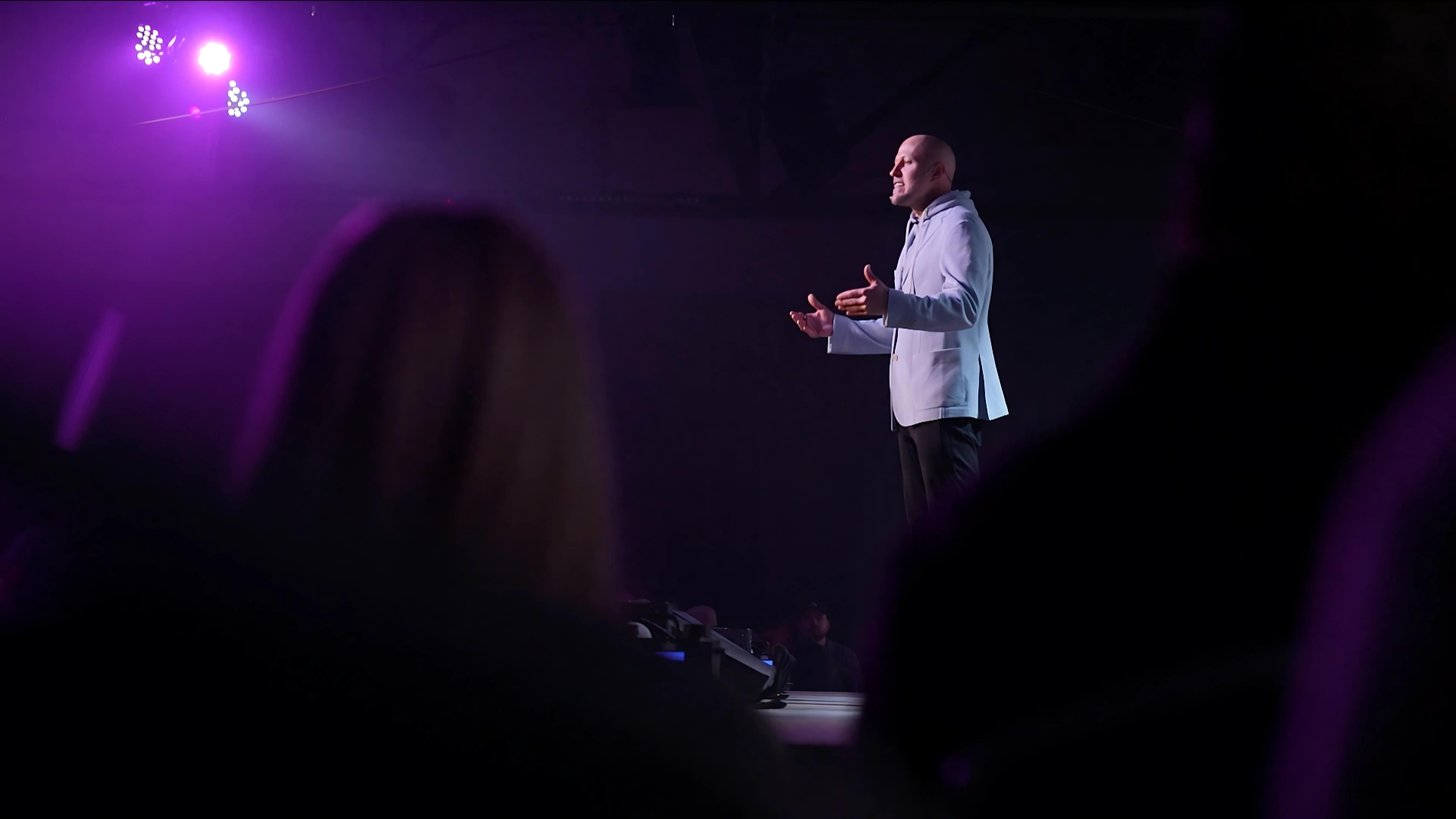Over the past few weeks, I’ve been on several pre-event calls with event planners and CEOs. When I ask about their biggest challenge, one theme consistently rises to the top: leading through uncertainty.
The pandemic may be over, but the turbulence hasn’t settled. With economic shifts, workforce expectations, geopolitical tensions—uncertainty seems more like the baseline than the exception. But here’s the truth: uncertainty has always been there. The difference is that it seems to be around every corner.
And that’s the real challenge. When we’re overwhelmed by uncertainty, we lose our ability to be present. Our minds race ahead to worst-case scenarios or get stuck in analysis paralysis. But leadership—real leadership—only happens from the present moment.
Accept That Leading Through Uncertainty Is a Constant
A key to being present is letting go of the illusion that things were ever fully under control in the first place. Our resistance to uncertainty—whether in markets, relationships, or strategy—only increases stress and clouds decision-making.
Instead of resisting, try accepting it. Studies from Harvard on psychological flexibility suggest that those who embrace uncertainty rather than fight it experience lower stress and make clearer decisions. Whatever we resist persists. Acceptance, but not complacency, is an antidote.
Understand the Impermanence of Everything
Nothing lasts forever—not the wins, not the losses, and not even the uncertainty itself. The ability to internalize this creates a mental shift that allows leaders to engage more fully in the present. We suffer when we are psychologically attached to something that no longer exists in our current reality.
Buddhist psychology has long taught that impermanence is fundamental to life, but modern research backs this up. A study from Yale University found that leaders who adopt a mindset of impermanence are better equipped to make agile decisions and foster resilience within their teams.
Trust Your Intuition in the Midst of Information Overload
We are often drowning in data or grasping for it, waiting for perfect clarity before making a move. But certainty never comes wrapped in a bow. The best leaders know how to read the moment, drawing on both experience and intuition. I can think of 3 distinct decisions I’ve had to make in the last five years where the external data told me to make a certain decision. One time I trusted my intuition and reaped the rewards, but twice I’ve gone against it and dealt with the repercussions. Learn to tap into the wisdom the body holds. How do I actually feel about this decision when I get out of my analytical mind for a moment?
In addition to working your way through a challenge, try feeling your way through it.
Research from Harvard’s Kennedy School shows that leaders who develop and trust their intuition make faster, more effective decisions in ambiguous situations. The first step to this is learning to quiet the noise of the ego.
Make the Next Right Move
Holding space for ambiguity is important, but stagnation is dangerous. The goal isn’t to make the perfect decision—it’s to make the next right decision. Micro-adjustments allow for course correction, keeping momentum without getting stuck in the pursuit of certainty.
Perfectionism often masquerades as high standards, but in reality, it’s a fear-based avoidance of action. A recent article in The Times emphasizes that taking small, iterative steps creates progress and helps leaders stay adaptable.
Presence Is the Antidote to Uncertainty
When leading through uncertainty feels overwhelming, the most powerful thing a leader can do is come back to the present moment. Accepting uncertainty, recognizing impermanence, trusting intuition, and making small, intentional moves—all of these are tools to break free from the mental loops that pull us out of the now. When we come home to ourselves, even for a few breaths, we can transcend the noise and win the moments that matter.
Because here’s the paradox — we experience uncertainty in the present, but the truth is it’s about an unknown future. The more we can fully engage with the present, we can develop the internal skills to prepare for what’s next—whatever the future may hold.





